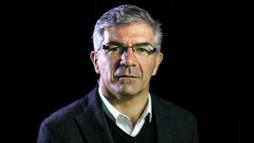Between the revolution that began on April 25, 1974, and April 2, 1976 - the date on which the Constitution of the Portuguese Republic was approved - various Catholics were among the agents of profound political, social, economic, and cultural transformations. Whether in social movements or in the institutional positions of the new power, their presence and the inclusion of Catholics marked the revolutionary process from the very beginning.
In the actions triggered in the name of revolutionary legitimacy and the initiatives materialized under revolutionary legality, it is particularly interesting to scrutinize, among Catholic protagonists, what values, foundations, ideals, and ideas guided the political actors and their uses, with the intention of influencing the revolution.
Exploratorily, the approach we propose aims to contextualize trajectories of political intervention and identify the instances and modalities of implementing the values of Integral Human Development (IHD) in the historical period under analysis.
It is within this framework that our presentation intends to situate itself, based on archival sources and oral records, pursuing a qualitative content analysis methodology.
Biography:
Edgar Silva (Funchal, Madeira, 1962). He is currently a postdoctoral fellow at Universidade Católica Portuguesa (CADOS Program for Integral Human Development). Got his PhD degree in History with a specialization in Contemporary History from the Faculty of Theology of Catholic University of Portugal (2023) in the PIUDHIST - Inter-University Doctoral Programme in History (Change and Continuity in a Global Word. He was a doctoral fellow of the FCT - Science and Technology Foundation (2019-2023) with the Thesis on the social catholicism and political commitment in Portugal (1965-1976) entitled “'Vendaval de Utopias'. Do catolicismo social ao compromisso político em Portugal (1965-1976). Os católicos da revolução e o PCP”.



